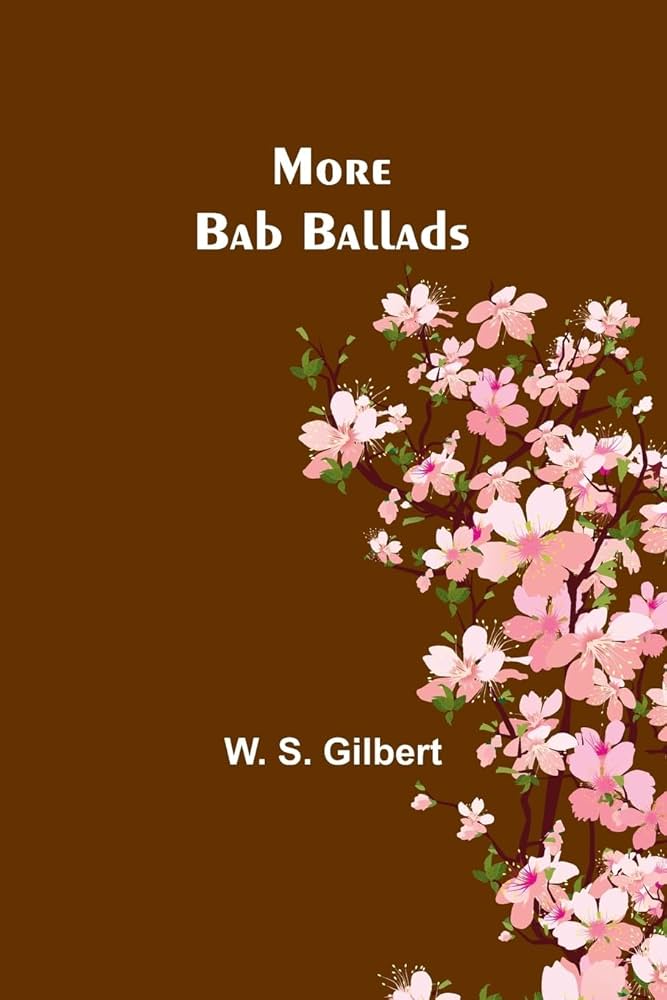Ballad: A Worm Will Turn
byA Worm Will Turn follows the life of Bernard Jupp, a man who radiates positivity no matter how hard the world tries to bring him down. His laughter is not the kind born of ignorance, but a deliberate response to the heaviness life can bring. Even when faced with personal and financial ruin, Bernard does not waver. There is wisdom in his wit, strength in his silliness, and hope behind every grin he offers. His approach to pain is not avoidance but reframing—it’s about choosing to see value in struggle and purpose in loss. This makes his story not only charming but quietly profound. Readers are reminded that endurance often looks less like stoic silence and more like a well-timed joke in a moment of despair.
Bernard’s father, once the proud owner of land and status, sees everything vanish. The fall from affluence to a modest clerk’s life might have broken lesser spirits, but Bernard reframes the moment as a return to authenticity. Without riches to hide behind, he believes, people can better understand themselves and one another. To him, wealth is not a measure of worth but a distraction from deeper truths. He doesn’t romanticize poverty, but he does reject the illusion that riches guarantee happiness. It’s a theme many modern readers can relate to—especially in a world where materialism so often masks emotional scarcity. Bernard’s worldview doesn’t demand we suffer; it simply asks us to resist letting circumstances define our joy.
When Bernard’s extended family stumbles into scandal, he meets each event with a curious mix of empathy and humor. Where others might express outrage or shame, he leans into understanding. An uncle’s forgery? A foolish misstep, not a permanent stain. A cousin’s controversial marriage? Proof that love doesn’t care for convention. His responses don’t come from naïveté but from a refusal to let anger or embarrassment lead. Bernard chooses compassion, even when tradition urges otherwise. This reveals a quiet defiance in his character—one that challenges rigid societal values without ever raising his voice. In every family mess, he sees a chance to learn, not to condemn. His example urges us to examine how quickly we assign blame instead of grace.
There’s a refreshing logic in Bernard’s optimism that avoids toxic positivity. He acknowledges hardships; he just refuses to become them. His philosophy is not that everything is fine, but that everything can be faced with a better frame of mind. Pain, loss, and failure are treated not as tragedies but as ingredients in the broader recipe of life. He believes that misfortune has no power unless we hand it the pen to write our story. Instead, he chooses to author his own narrative with humor, lightness, and a firm grip on emotional clarity. Bernard never denies reality—he simply reimagines its impact. That’s a skill worth learning.
For readers navigating their own trials, Bernard’s approach offers a comforting blueprint. When setbacks hit—whether personal, financial, or social—reacting with perspective can change more than the outcome; it can transform the journey. Bernard teaches that laughter doesn’t make pain disappear, but it gives you the strength to carry it with less weight. His life is not ideal, but it is intentional. And in choosing joy despite difficulty, he shapes a reality that is livable, honest, and full of small victories. His story challenges the idea that only the powerful or lucky get to be happy. Instead, happiness becomes a discipline—one that, like Bernard, anyone can practice.
A Worm Will Turn reminds us that resilience is not about hardening, but about softening in a world that wants to toughen you. It’s about finding the flexibility to bend when life pushes instead of breaking under pressure. Bernard Jupp doesn’t rebel with fists or speeches; he resists with levity and kindness. That’s not weakness—it’s quiet rebellion. His humor becomes a shield and his empathy, a sword. The ballad leaves us with more than smiles; it leaves a challenge—to be a little more like Bernard in a world that could use more light. Because in the end, even a worm, when pushed too far, will rise—not in rage, but with resolve, grace, and a twinkle in its eye.


